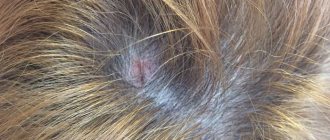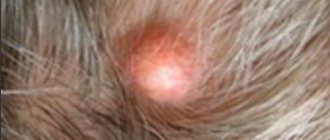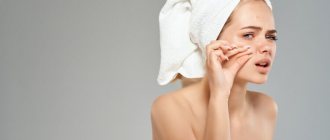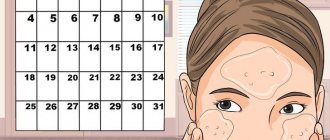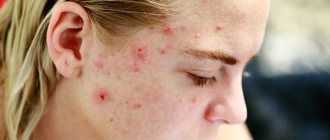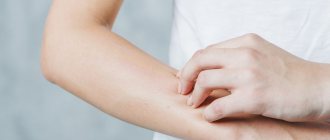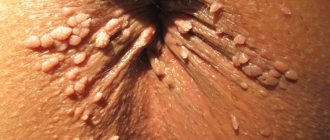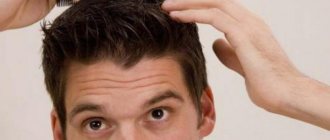Beautiful smooth skin or layers of foundation and powder? Stop breakouts!
Maria Blinova
dermatocosmetologist
Ask a Question
Inflammations on the cheekbones and cheeks can appear as early as adolescence and bother the owner for many years. What should you do if unattractive large pimples on your cheeks continue to bother you and appear again and again?
What causes acne
The causes of acne are varied , and it is not always possible to identify only one of them. Dermatologists identify two groups of mechanisms that trigger this process. The first includes physiological conditions, and the second includes diseases whose symptoms are acne. We are talking about several factors that have to be worked on comprehensively.
Physiological reasons
Rashes may appear on a woman’s face, the causes of which are not related to diseases . The situation cannot always be changed, but it does not pose a threat to health. This group includes the following factors:
- Hormonal changes. Fluctuations in hormonal levels are observed during menstruation, during breastfeeding and pregnancy, and during puberty. In this case, persistent acne in women on the chin, cheeks and cheekbones is transient and goes away on its own after normalization of the glands.
- Poor skin cleansing. Clogging of the sebaceous glands with dirt or cosmetics leads to suppuration and inflammation of the contents.
- Poor nutrition. Cakes, fast food, buns and sweets spoil not only your hips and waist, but also your face. A high sugar content is a favorable background for the development of microflora that lives on the skin. By feeding bacteria with sugar, you provoke their activity.
- Unhealthy Lifestyle. Alcohol and nicotine are poisons that poison the body. Human skin is involved in the elimination of toxins, which is why it reacts with the appearance of acne.
- Medicines. Taking various drugs kills normal microflora, which causes bacteria that are resistant to antibiotics to multiply. Acne can be triggered by taking anabolic hormones or hormonal contraceptives.
- Genetic predisposition. Oily and dense skin inherited from parents has virtually no chance of avoiding acne. Genetic medicine has not yet reached the point of treating acne, so we can only rely on local cosmetic products and methods.
READ ALSO: Acne due to problems with the thyroid gland - causes, treatment
Pathological causes
Sometimes the causes of acne are quite serious diseases that require diagnosis and treatment.
- Violation of hormone production. Pimples can signal diseases of the endocrine system, pathology of the adrenal glands, gonads or pituitary gland. If, in addition to the rash, you are concerned about menstruation irregularities, facial hair growth, blood pressure fluctuations, or the inability to get pregnant, then make an appointment with a doctor to diagnose the pathology.
- Diseases of the gastrointestinal tract. Duodenitis, gastritis, pancreatitis, chronic constipation, irritable bowel syndrome, and intestinal dysbiosis lead to the appearance of acne. The process of food digestion is disrupted, toxins accumulate, causing inflammatory reactions. If you are worried about acne on the neck and cheekbones, you should look for causes in the gastrointestinal tract with the following symptoms: heartburn, nausea, bowel dysfunction in the form of constipation or diarrhea, pain in the intestines, bloating.
- Disease of the hepatobiliary system. The liver is the body's main detoxifier, responsible for removing toxins from the blood and filtering it. Liver dysfunction develops with steatohepatosis, hepatitis, and delayed bile drainage, which are associated with gallbladder diseases. If you notice heaviness and pain in the right hypochondrium associated with physical activity or food, get examined.
- Demodecosis. A tiny mite that lives in the epidermis can be the culprit for the fact that acne on the cheekbones and cheeks does not want to go away. It clogs the ducts of the sebaceous glands and serves as a powerful allergen that causes inflammation. If there is more redness and swelling on the face than suppuration, consult a dermatologist.
- Allergy. Acne can occur due to food intolerances. Food allergens can be nuts, milk, berries, honey or citrus fruits. Try eliminating these foods from your diet for a couple of weeks and watch your skin. If the number of acne has decreased, add one product to the menu and figure out the culprit.
- Nervous system disorder. First of all, we are talking about chronic or acute stress. At the same time, the hormone cortisol increases in the body, which causes vasoconstriction, as a result of which facial tissues receive few nutrients. Decreased immunity plays a big role, because it accompanies depression, chronic stress and bipolar disorder.
The skin has many reasons to look imperfect, and your task is to find out the reason for this and eliminate it. And the entire arsenal of medicine, home care methods and cosmetology will come to the rescue.
READ ALSO: Acne on the chin: causes and methods of combating
Causes of acne on cheeks
Any cosmetic defects of the skin indicate a malfunction of internal organs or an allergic reaction, and acne on the cheeks is no exception.
The most common causes of skin inflammation:
- hormonal dysfunction;
- intestinal diseases;
- poor nutrition;
- gynecological diseases, the presence of an inflammatory process in the ovaries;
- metabolic disorders;
- genetic predisposition;
- general weakening of the body's barrier functions;
- use of low-quality cosmetics;
- improper facial skin care;
- allergies to decorative and caring cosmetics or food products.
Diagnostic methods
Even doctors cannot independently exclude or confirm serious diseases without involving specialists or research. If you notice any of the symptoms mentioned above, go to a specialist. If no clear symptoms are observed, proceed sequentially:
- Visit a gastroenterologist. The doctor will check the symptoms and prescribe tests, if necessary: ultrasound of the liver, pancreas and biliary tract, blood test.
- After questioning, the endocrinologist will recommend undergoing an ultrasound of the pelvic organs and adrenal glands, and donating blood for hormonal levels.
- Psychiatrist. Contacting this specialist frightens many patients, because in their imagination they conjure up images of institutions with bars and a straitjacket. Such stereotypes have no relation to modern psychiatry, so do not be afraid to see a psychiatrist to identify abnormalities in the functioning of the nervous system.
- It’s not for nothing that a dermatologist is in last place on the list of visits to doctors, because he can start working only when other doctors have ruled out pathologies of his own profile. You will be required to submit a scraping of the epidermis, a clinical allergy test and blood test.
If abnormalities are detected, you will be prescribed appropriate treatment that will eliminate acne and the causes of its appearance. Follow all doctor's recommendations, even those related to nutrition and lifestyle.
How to fight acne on your own
When acne appears on a woman's cheekbones, it is not always possible to identify the causes. Doctors are confident that you are healthy, but the condition of your skin leaves much to be desired. And most likely, we are talking about eating or lifestyle disorders, as well as hereditary predisposition. Start fighting pimples on your own.
Local remedies
It will not be possible to do without local treatment; your actions should be aimed at cleansing, disinfecting and drying the skin:
- Choose products with an antiseptic effect for washing. Choose gels that contain salicylic acid.
- Rinse your face with a mixture of adding a tablespoon of lemon juice or apple cider vinegar to a glass of water.
- Wipe your face daily with a cotton pad soaked in salicylic alcohol.
- To rinse your face, prepare a decoction or infusion of string, chamomile, sage or oak bark. You will need one tablespoon of plant material per glass of water. Freeze the healing decoction in the form of ice cubes and wipe your face with them in the morning.
- A pimple located deeply can take a long time to mature, causing very unpleasant and painful sensations. Cotton wool with Vishnevsky ointment will help to pull it out, which should be secured with a band-aid overnight.
READ ALSO: Top 16 best ointments for acne on the face: what they are, features of choice
Tar soap is an effective cleanser. It dries and disinfects the skin perfectly, but has an unpleasant, pungent odor. Hide the bar in a closed soap dish.
Rosacea (rosacea) - symptoms and treatment
The mechanisms of development of the disease are still being studied and clarified[1][9][10], but a key role in the pathogenesis of rosacea is now played by a violation of vascular tone - angioneurosis. In particular, the mediator bradykinin is involved in the development of transient and persistent facial redness, the level of which also increases during menopause, causing characteristic hot flashes. The same effect can be observed during the reaction to psycho-emotional stimuli[15], especially in people with an unstable psyche and a particular tendency to pronounced vegetative manifestations.
With rosacea, there is a release of other vasoactive inflammatory mediators - histamine, serotonin and prostaglandins.[8]
Some studies confirm that changes in the microvascular bed also activate special proteins - cathelicidins [2], which affect the cells of the inner lining of blood vessels (endotheliocytes), and can also affect local immunity and cause inflammation. It is noted that in people with rosacea, the level of cathelicidins, as well as protease enzymes in the facial skin, is sharply increased.
Excessive ultraviolet irradiation[6] can also change vascular tone due to its damaging effect on the vascular wall, which leads to its atony and increased fragility. In addition, UV irradiation causes degradation of dermal fibers, which also makes the skin more vulnerable to external factors.
Rosacea, provoked by taking topical corticosteroid drugs (especially fluoride-containing ones), has a special development mechanism. The fact is that with the superficial occurrence of intradermal small blood vessels, the network of which is especially well developed on the face of people predisposed to rosacea, corticosteroid drugs are absorbed more intensively. In addition, their peculiar “depot” on the surface of the skin is formed in the dilated follicular ostia, through which they penetrate into the sebaceous glands. Long-term use of steroid drugs worsens the bactericidal properties of the skin, thins the epidermis, which increases the likelihood of pathogenic microorganisms penetrating into the deeper layers of the skin with the subsequent development of inflammation.
Inflammatory processes during the appearance of papules and pustules are also stimulated by the bacterium Bacillus oleronius, which is secreted by Demodex mites.[16] In addition, Staphylococcus epidermidis is often involved in the formation of pustular elements of the rash and visual disturbances.
Chronic inflammation is accompanied by functional insufficiency of small blood and lymphatic vessels of the face, which leads to the development of edema (lymphedema), fibrotic changes and thickening of the skin.
The main pathogenetic links of rosacea
General recommendations
Acne, the causes of which are not clear, requires lifestyle adjustments . You'll have to give up your favorite buns and reconsider other habits:
- Stick to a balanced diet. Add more fruits, cereals and vegetables to your menu. The fiber contained in these products cleanses the intestines and removes toxins and waste.
- Avoid junk food. From now on, confectionery, baked goods, fast food, fatty foods and carbonated drinks are prohibited for you. Minimize your consumption of alcohol and smoking or give it up altogether.
- Be sure to get enough sleep. Without proper sleep, there can be no talk of a healthy nervous system and a well-functioning immune system.
- Spend more time outdoors. Ventilation and a daily walk should become a habit, because oxygen has a good effect on redox reactions in the body.
- Drink at least two liters of clean water daily. Immediately after waking up, drink one glass to help the body flush out accumulated metabolic products in the tissues.
- When you return home, remove your makeup immediately. If possible, avoid using concealer, blush, foundation and powder. Use high-quality cosmetics and specialized makeup removers.
- Exfoliate regularly to remove dead skin cells and open up the oil glands. Use a scrub once a week and undergo salon treatments several times a year. The cosmetologist will advise you on cryodermabrasion, acid peeling or another technique.
Now, if you get acne, the treatment and causes of this problem are well known to you. Be sure to remember that prevention is the best treatment , follow general recommendations, even if you do not consider your skin to be problematic.
News MirTesen
